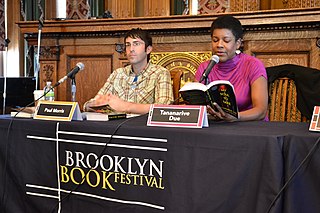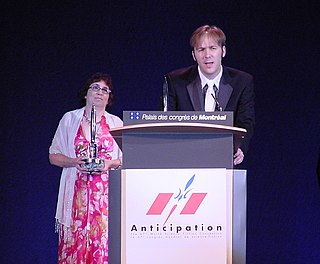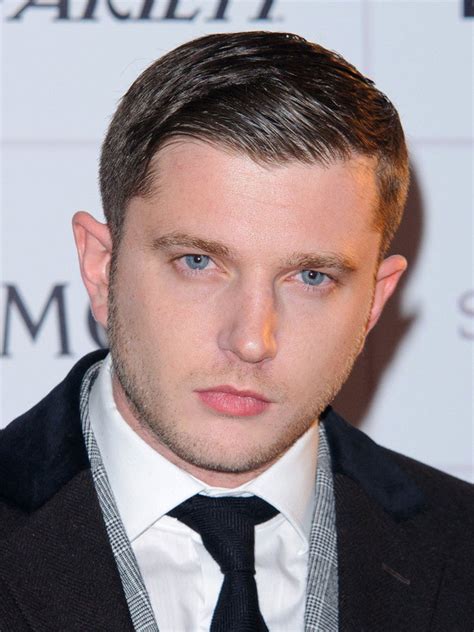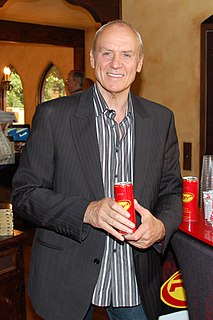A Quote by Tananarive Due
As a very young writer - kindergarten through about fifth grade - I most often wrote about black characters. My very early stories were science fiction and fantasy, with kids stowing away on spaceships and a girl named Tilly who was trying to get into the 'Guinness Book of World Records.'
Quote Topics
Related Quotes
Science fiction is fantasy about issues of science. Science fiction is a subset of fantasy. Fantasy predated it by several millennia. The '30s to the '50s were the golden age of science fiction - this was because, to a large degree, it was at this point that technology and science had exposed its potential without revealing the limitations.
I was a big fan of a writer named Jack Vance, a science fiction writer. He always wrote about these guys who were either going down a river in a strange world or would be in this one land where people acted really strange, and he'd have these interactions with them that were strange - he'd usually get run out of town or something. Then he'd end up in the next town over where the rules were totally different. And I love this stuff.
And I wanted to do a movie [Moonrise Kingdom] about a childhood romance - a very powerful experience of childhood romance. About what it's like to just be blindsided, when you're in fifth grade or sixth grade, by these kinds of feelings. Along the way, I sort of mixed in some interest in "young adult fantasy" writing.
I really don't watch enough TV to know about the impact. In my experience as a TV writer, I would say is the exact opposite - it's very constricted, all having to conform to a form. My sense of fiction writing is not to think about rules but to be driven by the characters and their stories. I often ask myself what's at risk here, who needs what, and how are they going to get it. There has to be a reason for the reader to stop living their own life and start reading your book.
'Filk' is the folk music of the science fiction and fantasy community - you get parodies, you get traditional music that's had the words slightly modified, and you'll also get just original works that have been written about science fiction and fantasy works, or with science fiction and fantasy themes.
I found very early on when I became a hip-hop artist that I loved telling stories. Actually, when I was trying to get a message across it was more powerful when I told a story, rather than if I used a metaphor or if I preached about an issue. And through doing that I realised that actually these stories were very visual in my head and I couldn't wait to make the videos.
Scientists are educated from a very early time and a very early age to believe that the greater scientist is the scientist who makes discoveries or theories that apply to the greatest ambit of things in the world. And if you've only made a very good theory about snails, or a very good theory about some planets but not about the universe as a whole, or about all the history of humankind, then you have in some sense accepted a lower position in the hierarchy of the fame of science as it's taught to you as a young student.



































